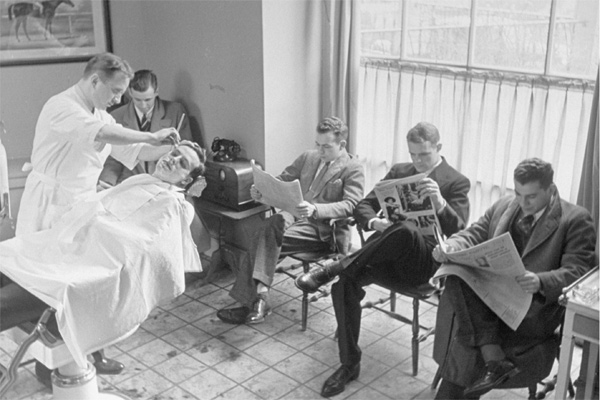
In his brilliant novel, Jayber Crow, Wendell Berry creates a particular scene to illustrate a point. Jayber Crow, who is
narrating his own story, is the town barber and, as is the lot of a small-town
barber, hears many conversations in his barber shop. Some of these
conversations are entertaining, amusing, and educational. Others are just plain
ignorant. He recounts the following interaction with Troy Chatham.
The war protesters had started making a stir, and the talk in my shop ran pretty much against them. Troy hated them. As his way was, he loved hearing himself say bad things about them.
One Saturday
evening, while Troy was waiting his turn in the chair, the subject was started
and Troy said – it was about the third thing said – “They ought to round up
every one of them sons of bitches and put them right in front of the damned
communists, and then whoever killed who, it would be all to the good.”
evening, while Troy was waiting his turn in the chair, the subject was started
and Troy said – it was about the third thing said – “They ought to round up
every one of them sons of bitches and put them right in front of the damned
communists, and then whoever killed who, it would be all to the good.”
There was a
little pause after that. Nobody wanted to try to top it. . . .
little pause after that. Nobody wanted to try to top it. . . .
It was hard to
do, but I quit cutting hair and looked at Troy. I said, “Love your enemies,
bless them that curse you, do good to them that hate you.”
do, but I quit cutting hair and looked at Troy. I said, “Love your enemies,
bless them that curse you, do good to them that hate you.”
Troy jerked his
head up and widened his eyes at me. “Where did you get that crap?”
head up and widened his eyes at me. “Where did you get that crap?”
I said, “Jesus
Christ.”
Christ.”
And Troy said,
“Oh.”
“Oh.”
It would have
been a great moment in the history of Christianity, except that I did not love
Troy.[1]
been a great moment in the history of Christianity, except that I did not love
Troy.[1]
How
easy it is to love our enemies in the abstract. It is difficult to love actual
people.
easy it is to love our enemies in the abstract. It is difficult to love actual
people.
Works Cited
Berry, Wendell. Jayber
Crow. Berkeley: Counterpoint, 2000.
Crow. Berkeley: Counterpoint, 2000.
[1] (Berry
2000, 287)
2000, 287)